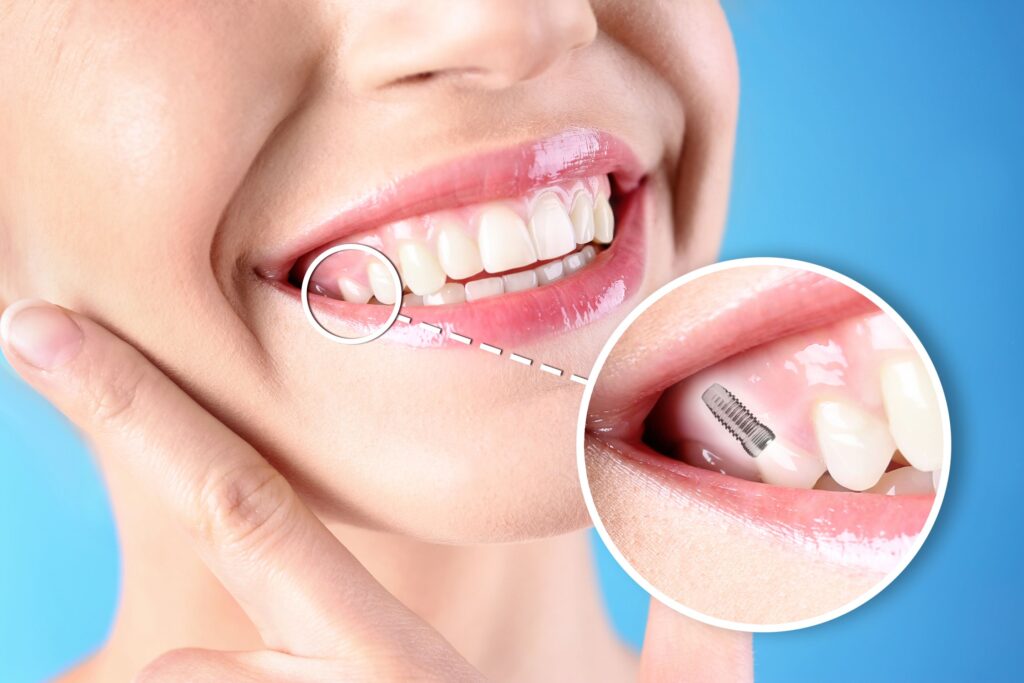
Did you know that the American Dental Association estimates that more than 5 million dental implants are placed annually? This treatment continues to gain popularity because of its unique placement in your jawbone. Unlike dentures or dental bridges, these replacement teeth become a permanent part of your mouth.
Many patients have questions about how long they can expect their new tooth to remain in good condition, but it depends significantly on how it’s made. Continue reading to learn more about how an implant’s materials impact its lifespan!
The Dental Implant Post
These restorations are the only ones that include a support rod that’s surgically embedded into your jaw to function like a root. It can take three to six months to heal from this procedure, because that’s how long it takes your mouth to produce enough new bone growth to fuse with the biocompatible material.
Typically, this post is made from titanium, which is an incredibly strong yet lightweight metal that can withstand the pressure of everyday biting and chewing. You can expect this to last 20 years or more if it’s properly cared for. Other implants use zirconia, a durable ceramic, instead of titanium; however, this may only last 15 to 20 years.
The Abutment
There’s a small connector that attaches to the implant placed in your jawbone, which will eventually anchor the tooth-shaped restoration in place. This is also usually made of titanium and can often last decades, though if you suffer from bruxism (chronic teeth grinding) you might wear it down sooner. This piece can also be made from zirconia, which might shorten its lifespan.
The Restoration
Depending on how many teeth you’ve lost and how many implants you received, your dentist will provide a customized dental crown, bridge, or dentures to restore your smile. These prosthetics are usually made from a special porcelain material that resists staining and chipping, and can often last 15+ years if it’s well maintained.
These teeth can also be made from acrylic, which is often more affordable but is less resilient than ceramic and will likely require more frequent repairs or replacements over the years.
Fortunately, there are things you can do to extend the lifespan of your new tooth. For example, brushing and flossing twice daily helps remove plaque and bacteria that contribute to a form of gum disease called peri-implantitis, the leading cause of failure.
You can also keep your implant looking and feeling great by visiting your dentist every six months for a routine exam and cleaning!
About the Practice
Patients at Northern Virginia Oral, Maxillofacial, & Implant Surgery benefit from a team of board-certified oral surgeons eager to help them improve their lives by enhancing their dental health. Our experts collaborate to offer various surgical, cosmetic, and restorative services. Then, they combine a compassionate approach with state-of-the-art technology to deliver comfortable, accurate results intended to last. They provide each step of the dental implant process in the office, including surgical placement and designing a customized prosthetic, to streamline your experience. You can request an appointment on the website or call one of their conveniently located offices near you!
